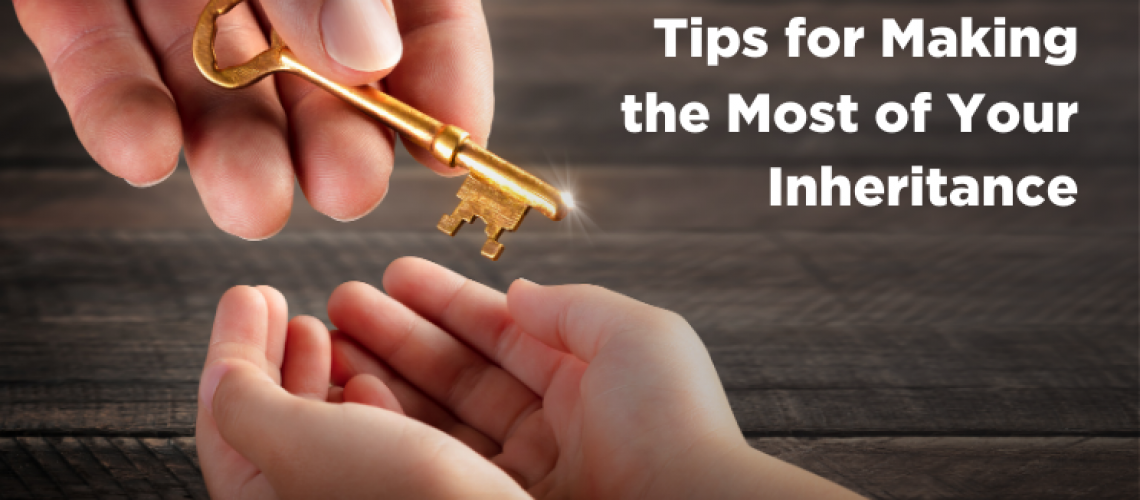Canada is in the midst of the Great Wealth Transfer, with an estimated $1 trillion in personal wealth passing from one generation to the next by 2026 as high-net-worth baby boomers leave their estates to Generation X and millennial heirs. If you’re among those expecting to receive an inheritance, planning ahead for how you will use the wealth and account for any taxes will help you make the most of your windfall.
If you will inherit money…
If you stand to inherit a significant amount of money, earmark it toward financial goals ahead of time so you’ll be confident you’re putting it where it will do the most good. Here are a few options to consider:
- Pay off high-interest debt. High-interest debts such as credit card debt and personal loans eat away at your efforts to build savings. If you carry a balance, interest payments cause your debt to grow quickly. Pay off debts to save on interest and free up cash for other financial goals.
- Make a down payment on a home. Many mortgages require you to put down as much as 20 percent of the purchase price of a house upfront. The larger your down payment, the smaller your monthly mortgage payments and interest rate will likely be. If you already have a mortgage, you can use the cash to pay it down early.
Save for retirement. Use your windfall to help you boost savings in a tax-advantaged retirement account, such as an RRSP. In 2021, your tax-deductible contribution limit is equal to 18% of last year’s income or $27,830, whichever is smaller, plus last year’s unused contribution room. Money invested in the account grows tax-deferred until you retire.
If you will inherit a house…
Real estate can make a more complicated inheritance. Here are two important questions to help you prepare to inherit a house:
- What are the costs? Unlike a cash inheritance, a real estate inheritance can come with financial obligations. If you’ve been told that one day the family house will be yours, find out ahead of time what costs you may need to cover should you decide to keep the home. First, is there a mortgage? If so, do the terms of the mortgage allow you to take over payments, or do they require the mortgage balance to be paid in full when the property transfers ownership? Be aware of property taxes and maintenance costs. If you’re not readily able to cover these costs, you may consider selling the home.
- Is the inheritance shared? It’s not uncommon for siblings to inherit a piece of property together. If that’s your situation, then the most important thing is understanding each heir’s wants and needs. Then you can decide whether it makes sense to sell the home and split the profit, rent it out jointly or keep it in the family by having one heir buy out the others’ shares.
Managing taxes
Before you can be sure exactly how much you’ll be getting from an inheritance, you have to consider the tax bill. How much you might owe depends on several factors:
- There is no inheritance tax in Canada. In general, the estate settles its tax debt on a final return. While that means an inheritance doesn’t usually come with a tax bill for the heir, the size of your inheritance may be reduced by taxes levied on the final return.
- Unless an estate is inherited by a spouse, common-law partner, or certain dependents, it is taxed as if all non-registered assets — such as a house or non-registered investment account — were sold at fair market value, and 50% of any capital gain is added to the heir’s income. Registered assets, such as an RRSP, are taxed as income at fair market value unless left to a named qualified beneficiary.
- If you eventually sell an inherited asset, such as a home, for more than its fair market value at the time you inherited it, you will realize a capital gain and add 50% of the gain to your taxable income in the year you sell it.
Planning for inheritance is an important part of keeping on top of your personal finances, helping you decide how much you need to save for your financial goals and what you need to do now so a bequest can do the most good in the future.
SOURCES
https://www.investoreconomics.com/reports/household-balance-sheet-report-2019/
https://nssc.novascotia.ca/before-you-invest/question-week-what-happens-my-rrif-when-i-die
https://www.taxtips.ca/rrsp/taxonrrsprrifatdeath.htm
